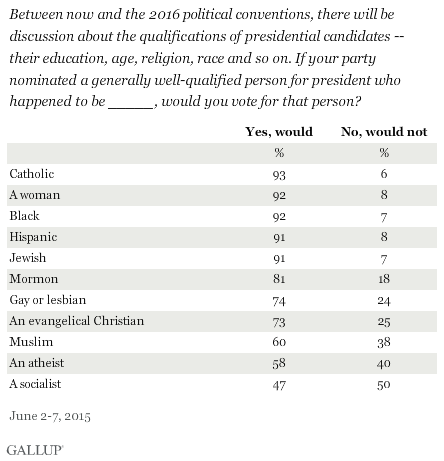Apparently, there's a
website that has garnered some attention lately because a breach of security allowed hackers to identify the email addresses of all of its users. Ironically, the main intention of the Ashley Madison website is for the breaching of something other than security...
Perhaps the revelation of the shear number of users (33 million to be precise) is beginning to destroy your faith in humanity. If this number doesn't do it, then, perhaps, what I'm about to share will. In 2013, the Pew Research Group provided a
survey of individuals across 40 different countries where questions about the acceptability of various moral issues were raised. The results were alarming!
Here are some of the findings... When asked whether or not extramarital affairs were acceptable (A), unacceptable (U), or not a moral issue (N), only 47% of French respondents said that affairs were unacceptable. More surprising, 40% of French respondents did not believe that extramarital affairs should be considered a moral issue.
Below is the list of 10 countries ranked lowest to highest based on the percent of respondents believing affairs are unacceptable:
COUNTRY
|
U%
|
A%
|
N%
|
|
|
47%
|
12%
|
40%
|
|
|
60%
|
11%
|
26%
|
|
|
62%
|
14%
|
13%
|
|
|
64%
|
10%
|
16%
|
|
|
64%
|
8%
|
27%
|
|
|
65%
|
11%
|
11%
|
|
|
66%
|
17%
|
10%
|
|
|
67%
|
13%
|
16%
|
|
|
68%
|
5%
|
24%
|
|
|
69%
|
12%
|
14%
|
If you're wondering where some of the other countries ranked, the U.S. was 28th (84% U), Canada was 17th (76% U), China was 16th (74% U), and Mexico was 13th (73% U). The Czech Republic had the largest percent of respondents say that affairs were acceptable (17% A) while Turkey and Palestine had the largest percent of respondents say that affairs were unacceptable (94% U).
With this in mind, it's possible, and even likely, that the level of morality in a particular country can have an important influence on economic outcomes. In a free enterprise system, where two agents voluntarily exchange goods and services, the perception of morality can play an important role. Seeing the list of 10 countries in the table above, you might be less inclined to buy something from someone in France. Why? Because you might think the French have no morals and who ever is selling you something in France is likely trying to rip you off.
Here is a Nobel Prize winning argument by Akerloff from 1970 that makes the same argument indirectly.
I took the liberty of plotting the relationship between the unacceptability of extramarital affairs and two measures of economic performance: GDP growth and Consumption growth. I'm only able to get 2014 GDP data for 39 of the 40 countries that Pew surveyed and 2014 Consumption data for 27 of the 40 countries, but this is what it looks like.
The plots show that the relationship between the level of unacceptability and growth rates are visually positive. That is, the percent of respondents that believe that extramarital affairs are unacceptable is directly associated with economic growth rates. Further, the univariate regression coefficients on the unacceptability percentage are both positive and statistically significant (Heteroskedastic-Consistent t-statistics = 2.33 and 2.45, respectively).
Now finding a positive relationship between morality, in this case, and economic growth is not tantamount to identifying a causal link. That is, we cannot say that morality causes greater economic growth given the tests above. It is counter intuitive, however, to think of a reverse-causality story - i.e., that greater growth rates leads to greater morality. If anything, I would argue that the more prosperous a country becomes, the more morally progressive the country becomes. Here, I'm finding the opposite relationship. More moral countries tend to have higher economic growth rates. Interesting, if you ask me.






